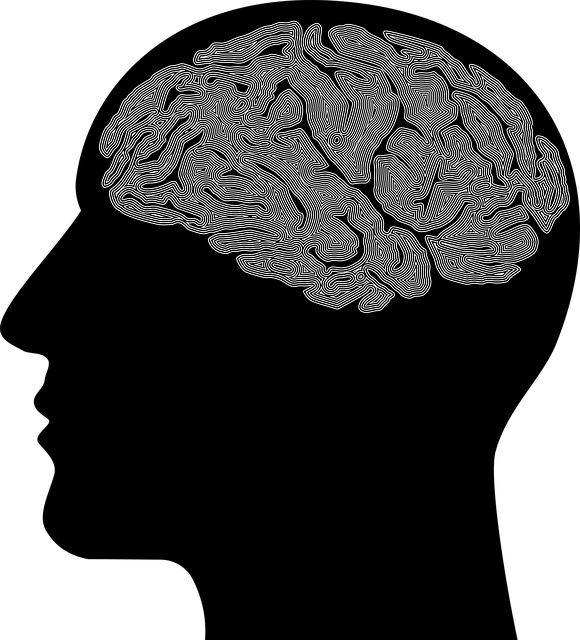Crisis intervention in mental healthcare is crucial for stabilizing individuals experiencing severe emotional distress or trauma, aiming to foster long-term resilience. Recognizing and addressing Arvada Adjustment Disorder (AAD), triggered by significant life changes or trauma, involves cultural sensitivity and individual history understanding. Arvada Adjustment Disorder therapy equips clients with tools to manage traumatic events through cognitive-behavioral strategies, mindfulness, compassion cultivation, and stigma reduction. Open communication and trauma-informed care principles facilitate trust and structured guidance, while post-crisis care addresses emotional and practical adjustments for holistic healing.
In times of crisis, effective intervention strategies are vital. This comprehensive guide delves into crucial aspects of crisis management, focusing on Arvada Adjustment Disorder therapy. From understanding the disorder’s signs and symptoms to exploring diverse therapy approaches, this article equips readers with practical strategies for supporting individuals in distress. Learn about post-crisis care and recovery support, ensuring a holistic approach to help those facing challenging adjustments.
- Understanding Crisis Intervention: A Brief Overview
- Identifying Signs and Symptoms of Arvada Adjustment Disorder
- Therapy Approaches for Effective Crisis Management
- Practical Strategies for Supporting Individuals in Distress
- Post-Crisis Care and Recovery Support
Understanding Crisis Intervention: A Brief Overview

Crisis intervention is a critical aspect of mental healthcare, offering immediate support and guidance to individuals facing severe emotional distress or traumatic events. It involves a structured yet flexible approach to help people navigate their immediate needs while also fostering long-term resilience. The goal is not just to stabilize an individual but to empower them to manage future challenges effectively. This process often begins with assessment, where professionals identify the root causes of the crisis, whether it’s related to depression, anxiety, or a specific disorder like Arvada Adjustment Disorder.
Effective crisis intervention strategies require a nuanced understanding of the individual’s cultural background and personal history, which is why cultural sensitivity in mental healthcare practice is essential. Mental wellness coaching programs and burnout prevention strategies for healthcare providers play a vital role in ensuring professionals are equipped to handle crises ethically and competently. By integrating these approaches, healthcare providers can create a supportive environment, enabling individuals to overcome immediate challenges and foster overall mental wellness.
Identifying Signs and Symptoms of Arvada Adjustment Disorder

Arvada Adjustment Disorder (AAD) can manifest in various ways, and recognizing its signs is crucial for effective crisis intervention. This disorder often results from significant life changes or traumatic events, leading to emotional distress and functional impairments. Early identification is key; professionals should look out for symptoms such as intense grief, anger, anxiety, or depression that significantly impact daily living. Behaviors like social withdrawal, substance abuse, or repeated relivings of the traumatic event through memories or nightmares are red flags and may indicate a need for Arvada Adjustment Disorder therapy.
Effective crisis intervention starts with understanding these signs. Healthcare providers play a vital role here, especially given the potential cultural complexities involved. Implementing Community Outreach Programs and providing Healthcare Provider Cultural Competency Training can enhance recognition of AAD, particularly in diverse communities. Communication strategies that foster open dialogue about mental health are also essential tools to ensure those affected receive the appropriate support and care.
Therapy Approaches for Effective Crisis Management

In crisis intervention, various therapy approaches play a pivotal role in effective management. One such approach that has proven to be valuable is Arvada Adjustment Disorder Therapy. This therapeutic method focuses on helping individuals cope with traumatic events or sudden changes in their lives, fostering resilience and adaptability. By employing techniques tailored to each person’s unique needs, this form of therapy empowers them to navigate challenging situations with enhanced emotional stability.
The process often involves a combination of cognitive-behavioral strategies, mindfulness practices, and compassion cultivating exercises. Cognitive-behavioral therapy helps individuals identify and challenge negative thought patterns associated with crises, thereby promoting healthier perspectives. Additionally, mental illness stigma reduction efforts are integrated into the therapeutic framework to create a safe space where clients feel comfortable discussing their experiences without fear of judgment. These approaches, coupled with confidence-boosting activities, enable participants to regain control and make positive steps towards recovery.
Practical Strategies for Supporting Individuals in Distress

In moments of crisis, offering immediate and practical support can make a significant difference in an individual’s well-being. One effective approach is to encourage open communication, creating a safe space for them to express their feelings and fears. Active listening skills are vital here; allowing the person to fully articulate their experiences without judgment fosters trust and encourages them to share more. This simple yet powerful technique can help individuals feel understood and less isolated during distressing times.
Additionally, incorporating trauma-informed care principles, such as those offered through Arvada Adjustment Disorder Therapy, provides structured guidance. This includes teaching conflict resolution techniques to manage intense emotions and helping individuals develop coping strategies tailored to their unique needs. Compassion cultivation practices have also proven effective in promoting emotional resilience, encouraging self-care, and fostering a sense of safety. These practical strategies not only support immediate crisis intervention but also empower individuals to build long-term coping mechanisms.
Post-Crisis Care and Recovery Support

After an individual has undergone crisis intervention, providing support for post-crisis care and recovery is essential to their long-term well-being. This phase focuses on helping them adjust to a new reality and regain a sense of stability. Many people experience what’s known as Arvada Adjustment Disorder after a traumatic event, characterized by feelings of sadness, anxiety, and difficulty functioning in daily life. Professional therapy plays a crucial role here, offering strategies tailored to their unique needs.
One effective approach is boosting confidence and fostering emotional intelligence, enabling individuals to recognize and manage their emotions effectively. Additionally, teaching conflict resolution techniques can significantly aid in healing relationships affected by the crisis and enhancing overall resilience. These interventions contribute to a holistic recovery process, ensuring that individuals not only survive but thrive after a challenging experience.
In conclusion, effective crisis intervention requires a multifaceted approach that combines understanding, identification, and support. By recognizing the signs of Arvada Adjustment Disorder through therapy approaches like those discussed, practitioners can implement practical strategies to aid individuals in distress. Post-crisis care and recovery support are vital for long-term healing, ensuring that those who have faced such challenges emerge with enhanced resilience. Integrating these guidance principles, including tailored Arvada Adjustment Disorder therapy, enables us to offer comprehensive care and promote positive outcomes for those navigating crises.








